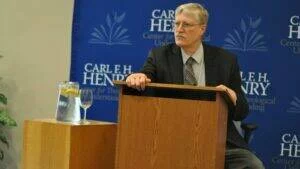Over the last 20 years I have been involved in a lot of writing projects, but this is only my third big book. I am often a slow writer and each book took years of gestation and labor. These metaphors are intentionally chosen because I feel like all three of these books are my children, children that have grown up and now gone into the world.
The Sermon on the Mount and Human Flourishing is the result of a decade of wrestling with, pondering, teaching, and preaching through the Sermon and a good five years of writing. Now that it is done, I am happy and thankful, and even proud of some ways that I think it has potential to pierce and add beauty to the world. But I’m also very aware of things I wish I would have said differently and understood more clearly, and especially of areas I wish I had explored and connected. Yet, as our children don’t stay living in our basements forever but need to leave and cleave to their own experience in the world, it was time for me to be done with this imperfect, flawed, but hopefully helpful book.
I welcome the helpful constructive criticism and dialogue provided by these kind reviewers as I continue to grow in my understanding, but more specifically, each of the respondents has made important points with which I agree. My purpose in responding is not to defend myself or disagree, but rather to hear, to appreciate, to clarify where needed, and to have a mutually beneficial dialogue about the important points raised.
Response to Taylor Worley
This is a fair critique that Bonhoeffer is mostly absent from my history of interpretation sketch. He’s not completely absent, however. Reference to Bonhoeffer is made in the discussion of African-American readings and the influence of Glen Stassen and David Gushee.Bonhoeffer himself was quite critical of the Lutheran Two Kingdoms view and accords with my own emphases on the necessity of discipleship. He does actually also appear briefly in Chapter 12 (fn. 35) under the discussion of Thesis 4: Salvation is Entailed with Discipleship/Virtuous Transformation.
But this is still an omission on my part. I have no explanation or justification for my lack of engagement with Bonhoeffer. For some not-entirely-clear-to-me reason I have always avoided him, but I’m sure this is to my loss. I may have lumped Bonhoeffer into my general distaste for Lutheranism’s systems, including the ways that Luther and Lutherans have read the Sermon. Yet Bonhoeffer himself was quite critical of the Lutheran Two Kingdoms view and accords with my own emphases on the necessity of discipleship. I think Matthew’s emphasis on the necessity for a “greater righteousness”—one that is from the heart and not merely external and perfunctory—mirrors Bonhoeffer’s own concerns about “cheap grace” and the importance of discipleship/following/emulation (Nachfolge).
Moreover, Taylor’s main dialogical critique is not a whiney, “Where’s my Bonhoeffer?,” but rather he senses that Bonhoeffer might have helped with providing “a more integrative model of discipleship.” This point is taken and accepted gladly. Another example of my stumbling toward understanding, not entirely in the dark, but often in the twilight.
Response to Steve Guthrie
Steve’s observations regarding the lack of pneumatology in my reflections is an important critique. This is unfortunately another example of my theological weaknesses, which are a function of my training and the modernist siloing of our distinct disciplines.
On the one hand, it is true that Matthew simply does not have much going on pneumatologically. In that sense, one could say that I offered a fair representation of Matthew’s own approach and emphases. However, Steve points out several ways in which the Spirit does appear in Matthew, ways that I have not paid enough attention to. Precisely because I was attempting to do more than just an historical and literary reading of Matthew, but also a Christian theological reading, my book definitely would have benefitted from a more robust and explicit pneumatology.
On this topic and the other items we discussed during the forum, thanks for the important insights and critiques.
Response to Steve Bryan
It is maybe not surprising that it is with the other New Testament scholar in the group that there will the most disagreement, or at least the most dialogue at the level of details. While, at one level, our whole discussion is an intramural dialogue, it is even more narrowIt is maybe not surprising that it is with the other New Testament scholar in the group that there will the most disagreement, or at least the most dialogue at the level of details. because it is with another scholar trained and working in the same small arena of New Testament studies. I don’t want to offer the worst kind of response paper to a response paper—“Well, if you’d just read me better you’d realize you’re wrong and I’m right!” Instead, let me respond directly to several of Steve’s points.
On Eco and the encyclopedic context Steve writes, “it is not clear to me how it materially differs from author-centered approaches that seek to read texts within the historical and cultural worlds in which they were written.” This raises an important point. Certainly, there is overlap between what I’m suggesting via Eco and the modern approach of “Bible backgrounds” in the end result, and I note as such in the book. But I believe Eco provides a more helpful overall model of interpretation than the grammatical-historical model that developed from modernism, because Eco’s model is rooted in a more robust epistemology and linguistic understanding of how communication occurs.
Regarding my arguments concerning the Greco-Roman context of the Sermon, Steve says:
I saw very little evidence for the idea that Matthew was shaped to any significant degree by the Greco-Roman virtue tradition. Moreover, if demonstrating the influence of the Greco-Roman virtue tradition is problematic for Matthew, it seems to me to be acutely so for Jesus. It was for me then altogether happy to see that the Greco-Roman virtue tradition plays almost no role in Pennington’s exegesis. Where it seems to have had an impact, however, is in the framing of the question which serves as his overall reading strategy for the Sermon.
If I’m understanding the critique correctly I’m not sure what to say except that this overlooks the well-established understanding of the profound effect of Hellenization on all of Second Temple Judaism, and this Hellenism morphing into the first-century Roman Imperial context. Martin Hengel established a major beachhead in this area some 40 years ago (and he was not the originator), but particularly in the last 10-15 years more and more excellent scholarly work is helping us re-understand the Greek New Testament documents not just in their Second Temple Jewish setting, but also their Greco-Roman setting (and note again that even the STJ setting is thoroughly Hellenized). The post-WWII pendulum swing into Second Temple Jewish backgrounds for the New Testament is balancing out again, in my opinion.
Moreover, I think my initial chapters that lay out the evocative significance of concepts likeI think Steve is partially right that the effect of this interpretive grid on my reading of the Sermon happens more at the framing level than in the details of my exegesis. makarios and teleios (plus others like phronimos) go a long way in showing that any Greek reader/hearer of this Greek text of Matthew could not have avoided the Greco-Roman philosophical evocations of such words and such a discourse, any more than referencing July 4 or the World Trade Center could not but evoke American patriotism and our national narrative in our current context.
I think Steve is partially right that the effect of this interpretive grid on my reading of the Sermon happens more at the framing level than in the details of my exegesis. I think this is how it should be; Jesus and the Sermon are Jewish first and the primary literary and conceptual context is the story of Israel and the Hebrew Scriptures. This is all then contextualized into a Hellenistic and Roman setting.
To Steve’s comment that the Greco-Roman ideas I’m noting “are all comprehensible without recourse to the Greco-Roman virtue tradition,” I would simply say that while it is certainly true that one can read the Sermon with comprehension without this understanding—this has been done for centuries—my point is that this linguistic/cultural context is certainly there in the production of the text and that the best and most comprehensive reading will take account of this context, which is clearly Hellenized Judaism and Greco-Roman.
Regarding my arguments about the structure of Matthew and the Sermon’s role in it Steve writes, “Pennington comments briefly that the Sermon is the ‘didactic portion’ of the broader message of the ‘gospel of the kingdom’ (95), but, if the Sermon really does form part of gospel, what exactly is this?” Maybe I wasn’t clear enough,I’m not making an argument with the premise that “because there are two words,” rather, I’m pointing out that we have a significant translation-into-English problem that has perpetuated a lot of confusion. but I certainly see the Sermon as integral to Matthew’s Gospel. It is the first of Matthew’s five major discourses that are woven carefully and skillfully into his biography. Additionally, the role of the Sermon within Matt 5-9 is the “preaching and teaching” portion of the “gospel of the kingdom.”
Regarding my arguments on the meaning of makarios and teleios, I was disappointed to hear Steve found the teleios study more compelling. I agree with what I’ve said there, of course, and do think it very important. But I thought my contribution to the makarios discussion is more original and more profound. Steve goes on to say, “I am not sure it will do to say that because the source language has two words, the target language must as well.” However, I’m not making an argument with the premise that “because there are two words,” rather, I’m pointing out that we have a significant translation-into-English problem that has perpetuated a lot of confusion. Unlike every other language I have encountered on this issue, all of which have two distinct word-concepts for active divine blessing and the state of flourishing, English does not. I am arguing that this is an English problem that has caused and perpetuated a lack of clarity on the different concepts represented by these two words for flourishing and blessing.
I myself am not entirely content with my gloss “flourishing,” as I note in the book because I recognize that it doesn’t work in every situation. But truly, what gloss from one language to another does always work? Thus, regarding Steve’s comment that “the flourishing death” doesn’t work very well in 4 Maccabees I can just say, “I agree!” But my argument is not about the necessity of always glossing this word as “flourishing” but about the “typically-lost-to-English-readers” idea, which I would argue is exactly what is going on in all of these texts, including 4 Maccabees. Finding examples where the English gloss “flourishing” doesn’t work (I could provide others myself) is no argument against what I’m pointing out in this chapter.
I’m also unclear why Steve would say that my reading of makarios leads to “certain infelicities such as the claim that ‘Jesus is redefining flourishing as suffering’ or that Jesus promises reward to followers who live theI will conclude by again stating how thankful I am for this iron-sharpening-iron dialogue with other Christian scholars as we together seek to understand and stand under God’s gift to us in the Sermon on the Mount. ‘paradoxically flourishing life of persecution.’” And then Steve references an email from a brother who is suffering persecution. My response is two-fold: Why is the idea of a paradox an “infelicity?” And how does the reference to a brother suffering somehow argue against the same paradox of flourishing in the midst of suffering? Jesus, over and against any other possible interpretations of human flourishing—whether Aristotelian or Joel Osteeny—is redefining what the true nature of life and life at its fullness as including and entailing suffering now. This is the definition of a paradox.
I would inquire of Steve, would he also call “rejoicing in suffering” an “infelicity” or suggest that such a suffering brother can’t really rejoice because he’s suffering? I think not, because we recognize in submission to Scripture that, despite its non-naturalness, this is precisely the paradox, an antimony that must be embraced and reshape our understanding of the world. Again, this is exactly what I’m trying to point out: people in the ancient world knew exactly what a macarism was and that it defined what true happiness is. This is precisely what Jesus is stepping into and re-shaping, claiming boldly and with authority that even suffering for the sake of righteousness is true happiness/flourishing.
I will conclude by again stating how thankful I am for this iron-sharpening-iron dialogue with other Christian scholars as we together seek to understand and stand under God’s gift to us in the Sermon on the Mount.







Comments
Be the first one to make a comment!